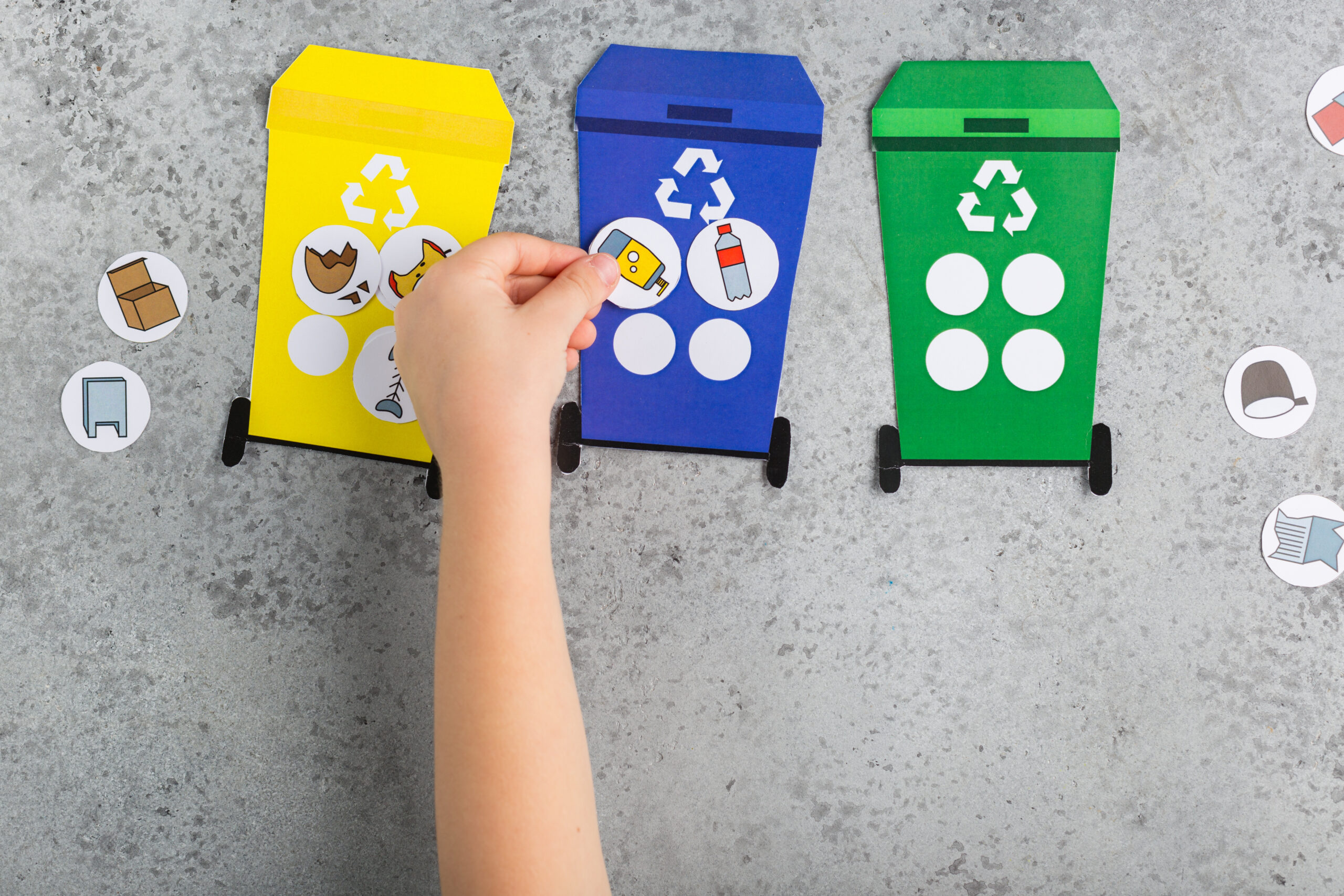
© Adobe Stock, Angelina Zinovieva
<h2>In New Zealand, we generate 17.49 million tonnes of waste a year. Around 72 percent of that, or 12.59 million tonnes goes to landfill.</h2>
<p>Reducing and recycling waste is everyone’s responsibility. Education at school on reducing, reusing and recycling can help young people understand their role in protecting the environment. To model this, and reduce your schools waste generation, a strong waste management plan is essential. Strategic selection and placement of bins will ensure the plan succeeds.</p>
<p><a href="https://www.schoolnews.co.nz/latest-print-issue/" target="_blank" rel="noopener"><strong>Read the Term 4 edition of <em>School News</em> HERE</strong></a> </p>
<p><strong>Recycling Bins</strong></p>
<p>Recycling bins are the frontline in diverting waste from landfills. To encourage use, place recycling bins in high-traffic areas such as hallways or play areas, as well as near the canteen or tuck shop.</p>
<p>You can further encourage eco-conscious behaviours through recycling drives, reward programs and collaborations with local businesses.</p>
<p><strong>Food Waste Bins</strong></p>
<p>Minimising food waste is paramount to reducing landfill. Love Food Hate Waste New Zealand, an organisation committed to reducing food waste in Aotearoa, reports that several New Zealand schools have conducted food waste audits. In one primary school, the children from one class threw away 3.7 kg of food waste a day. This amounts to 18 kilograms a week or 180 kilograms a term.</p>
<p>Encourage students to place any food scraps or leftovers in a designated food waste bin and work alongside staff and tuck shop employees to ensure continuity throughout the school. Teaching students about composting and using food scraps for educational purposes, such as in school gardens, compost or worm farms, can turn food waste into a valuable learning opportunity.</p>
<figure id="attachment_29377" aria-describedby="caption-attachment-29377" style="width: 800px" class="wp-caption alignnone"><img class="wp-image-29377 size-full" src="https://www.schoolnews.co.nz/wp-content/uploads/2023/12/AdobeStock_257643245.jpeg" alt="" width="800" height="533" /><figcaption id="caption-attachment-29377" class="wp-caption-text">© Pixel-Shot, Adobe Stock</figcaption></figure>
<p><strong>Paper Bins</strong></p>
<p>Unsurprisingly, schools are hotbeds of paper consumption, from worksheets and notebooks to administrative forms. Paper waste bins ensure that paper is collected and sorted for effective recycling, and should be accessible in all classrooms and staffrooms, as well, for example, beside photocopiers.</p>
<p>Students and staff should be encouraged to find multiple uses for paper, such as using both sides of the sheet or repurposing used paper for craft activities. Moving to digital documents where possible can also help alleviate paper waste.</p>
<p><strong>General Waste Bins</strong></p>
<p>Despite best efforts, there will always be some materials that cannot be reused or recycled and must be disposed of in general waste. To help ensure that the correct waste is placed in these bins, consider creating infographics that clearly show what can be placed in each bin. General waste bins should be strategically located to discourage contamination of recycling, paper, and food waste bins.</p>
<p><strong>Beyond the bins</strong></p>
<p>A great way to decrease your school’s waste generation is to stop rubbish from entering the school grounds. Encouraging students and families to not individually wrap food items, but instead opt for reuseable containers is a great first step. Students could also discuss with their parents and caregivers the types of food they enjoy in their lunchbox, to ensure food is eaten and not thrown away.</p>
<p>Taking a collective approach to waste management will help students, staff and the community think more carefully about where they put their rubbish. In time, this will translate to less waste in landfill, and better environmental outcomes.</p>

Loneliness and social disconnection negatively impact wellbeing. A new WHO report finds teens feel the…
Should play-based learning be part of the primary curriculum? Researchers asked primary teachers from Australia…
Working with ASSA ABLOY, the school has eliminated potential emergency rekeying, and removed the guesswork…
Lithuania will be providing free AI technology to every secondary school in the country.
Whether it’s sharing important updates, boosting morale, or showcasing student success, digital displays are becoming…
Industrial, legal action and unrest between the education sector and the Ministry of Education rises…
This website uses cookies.